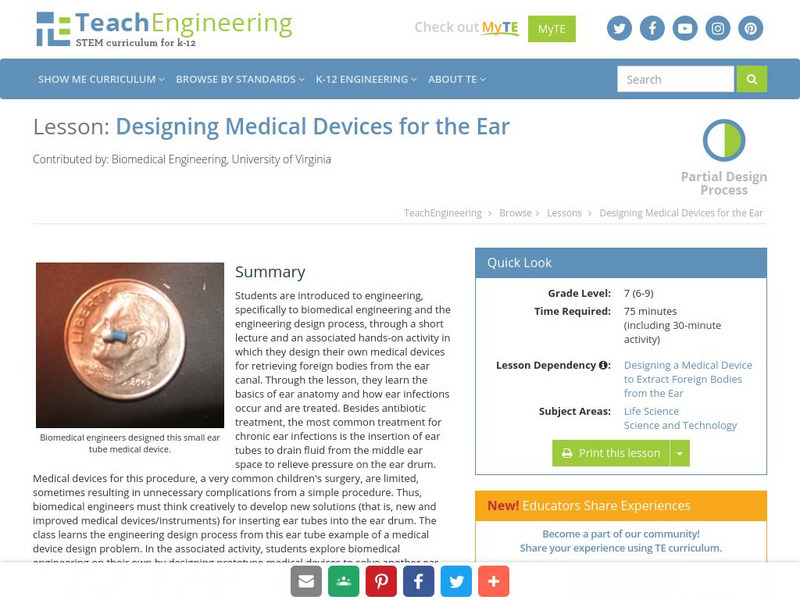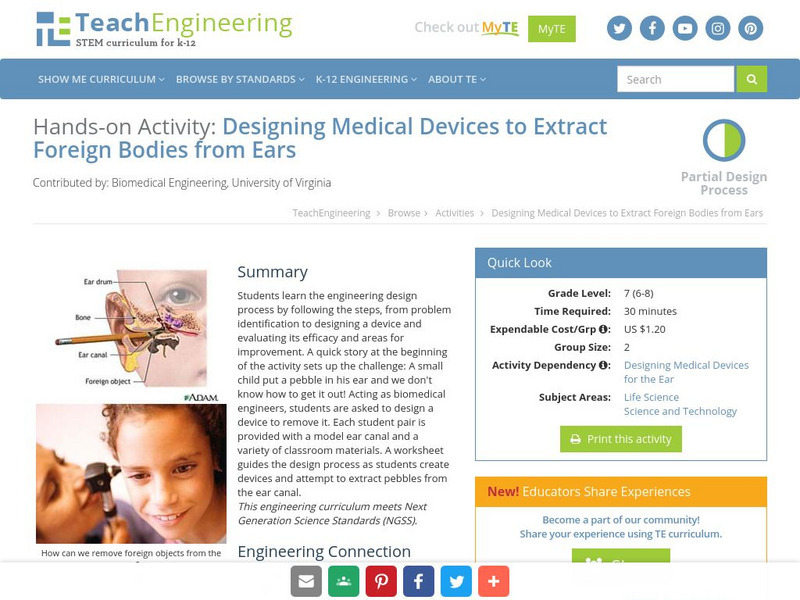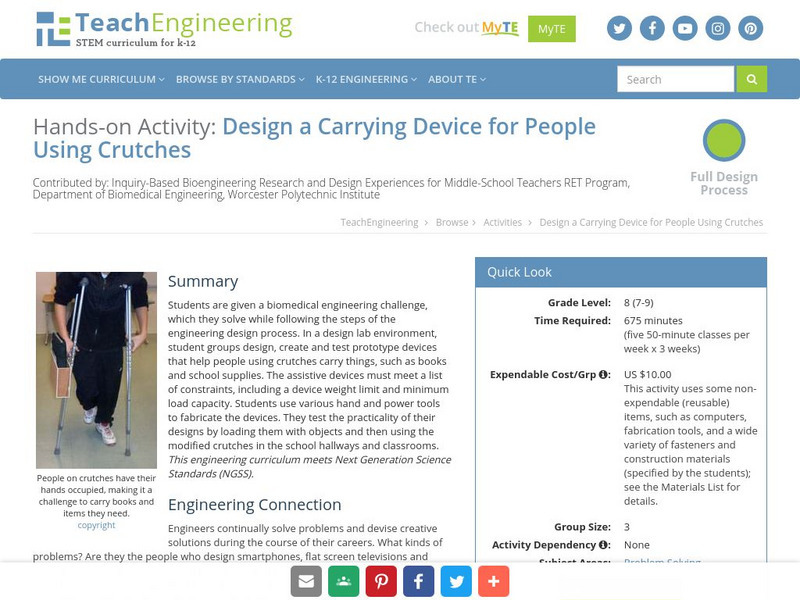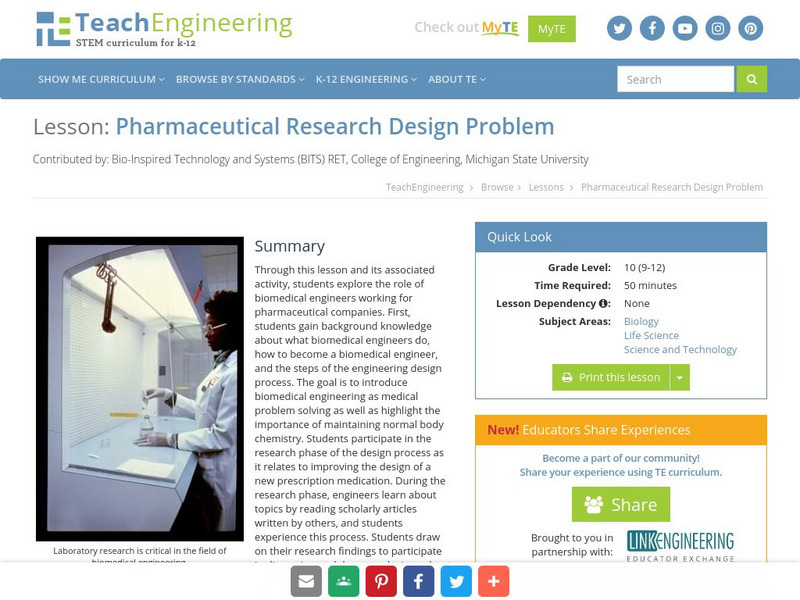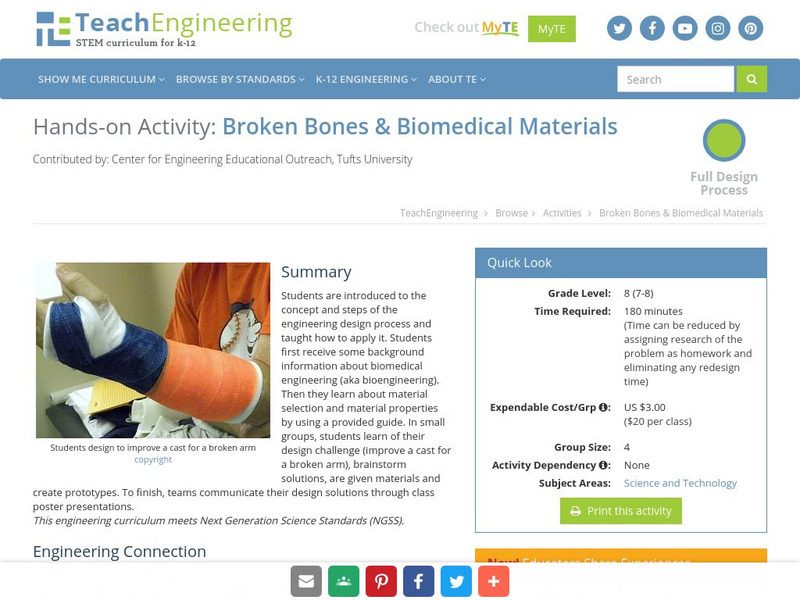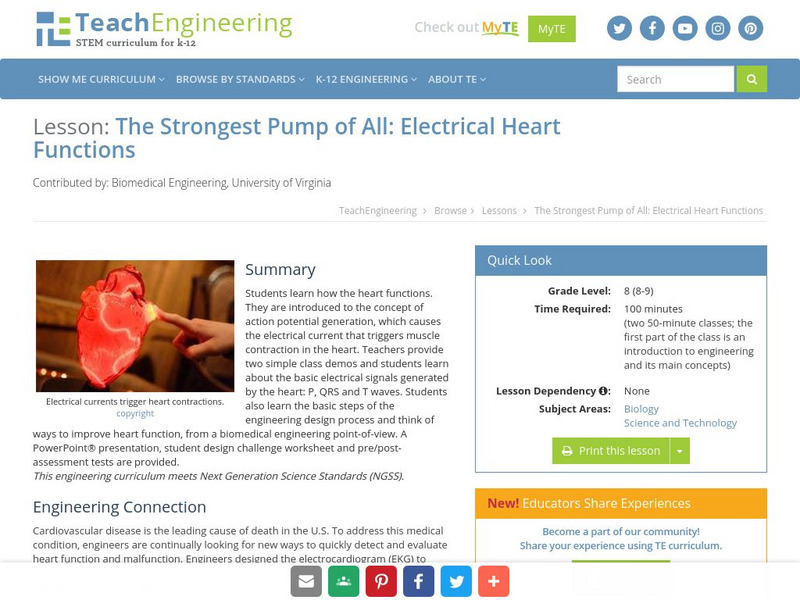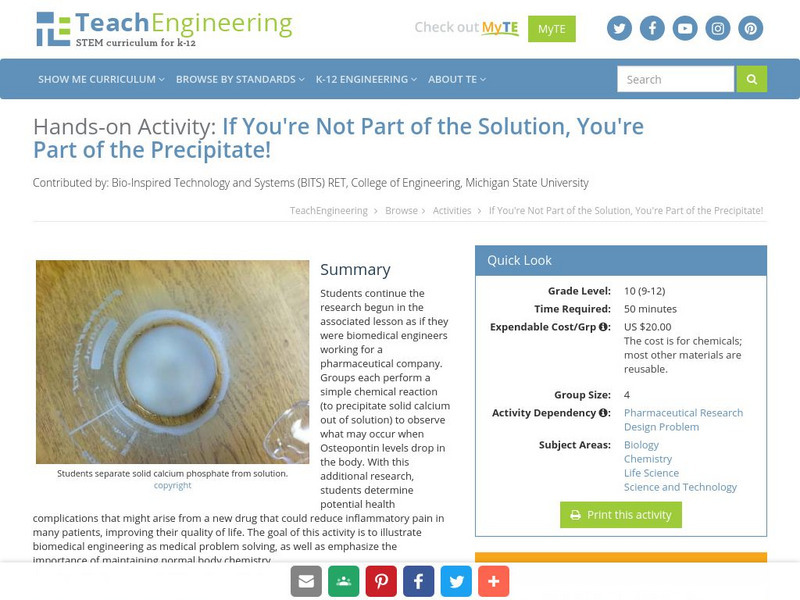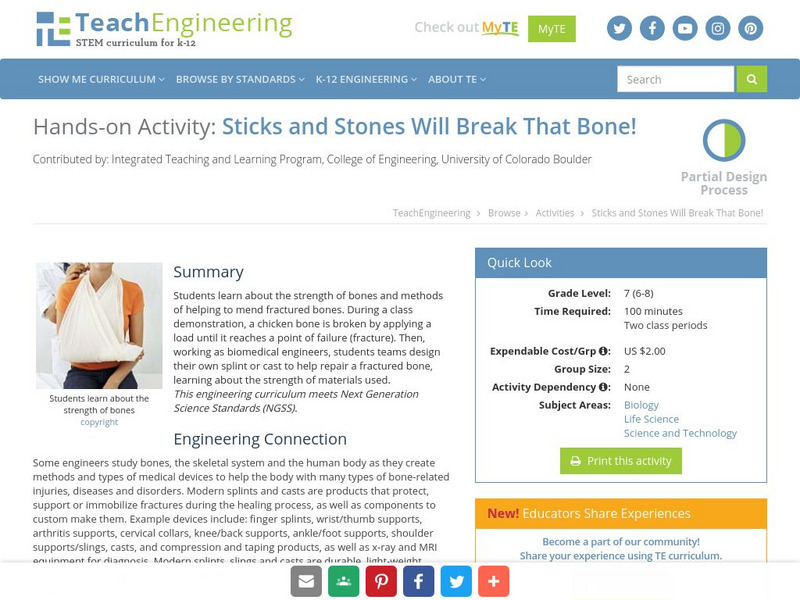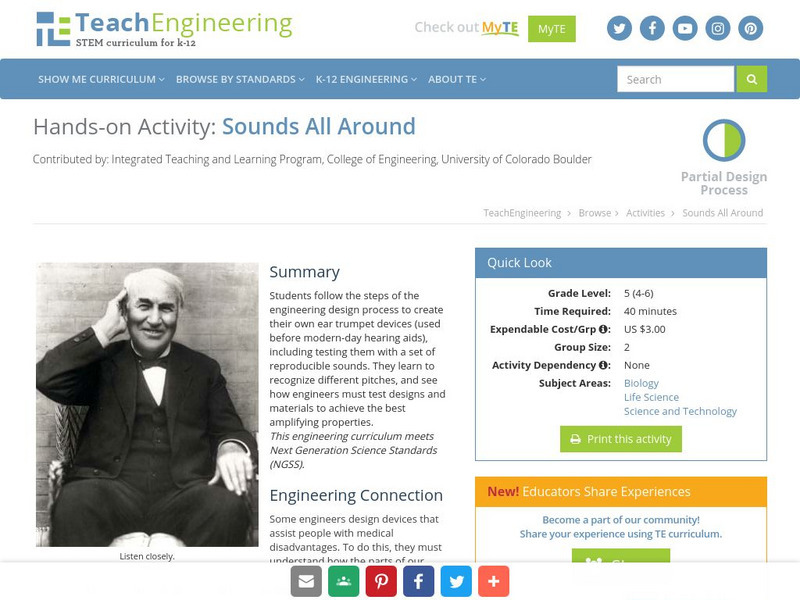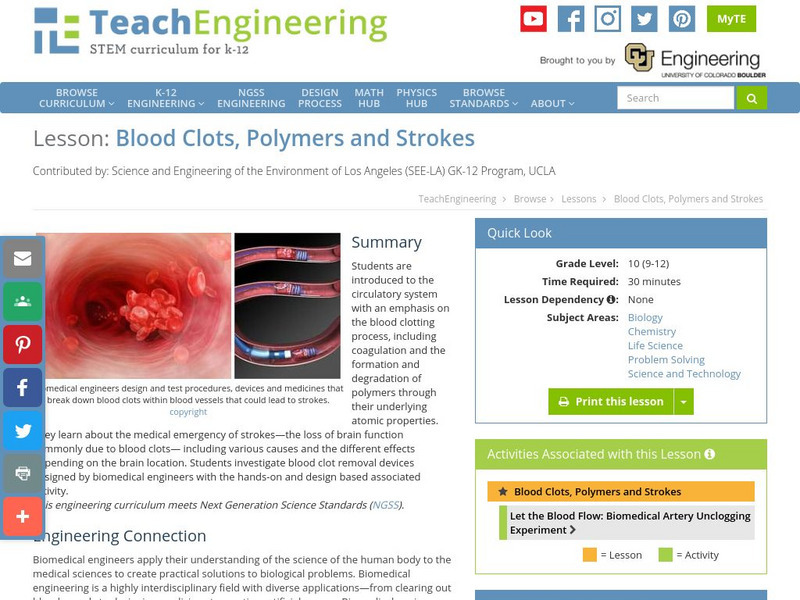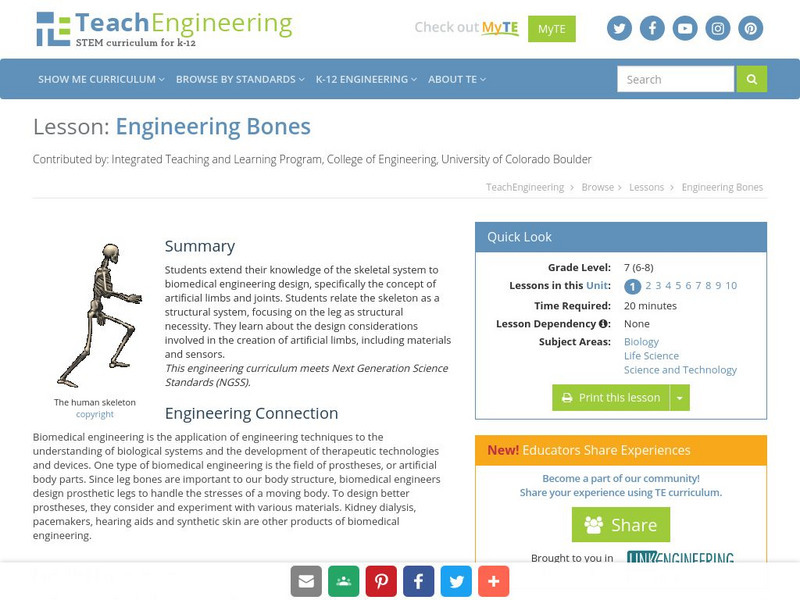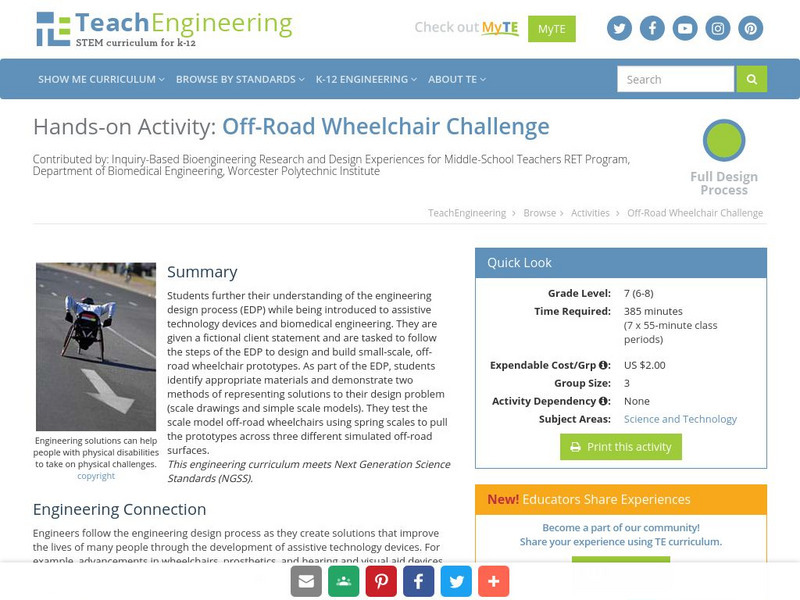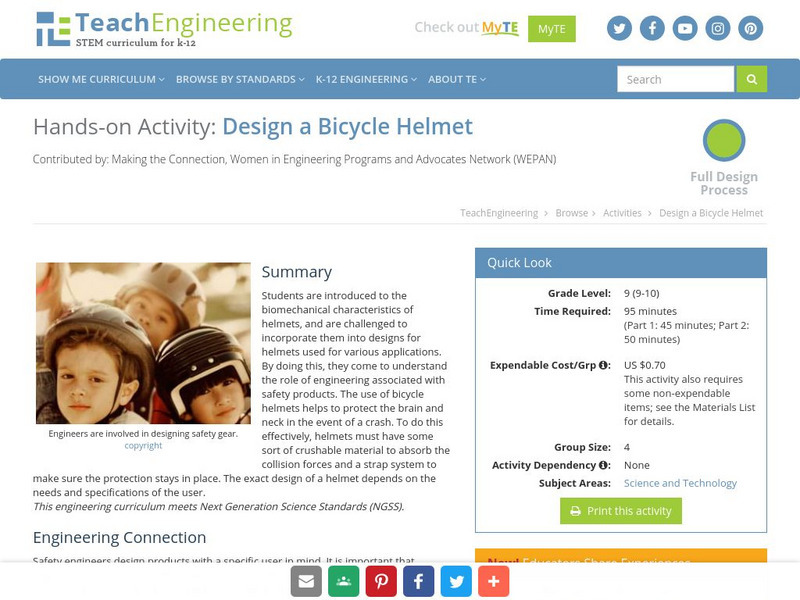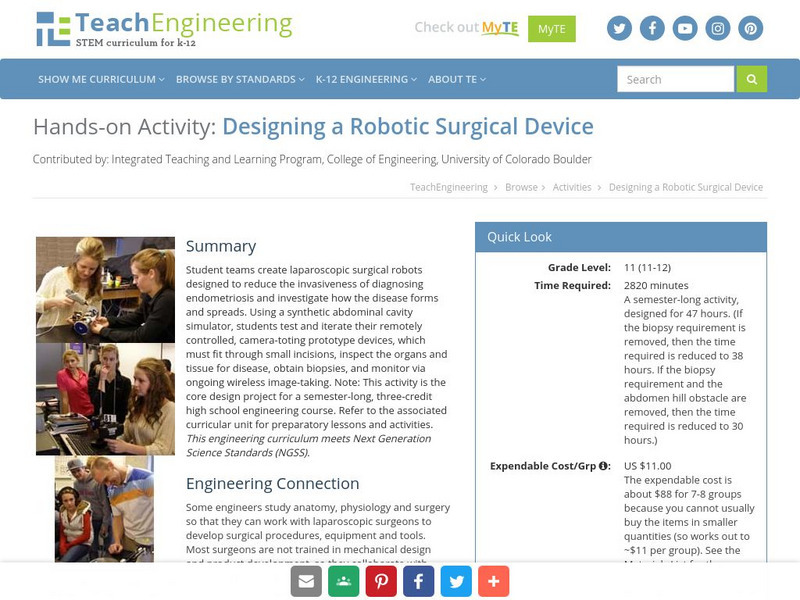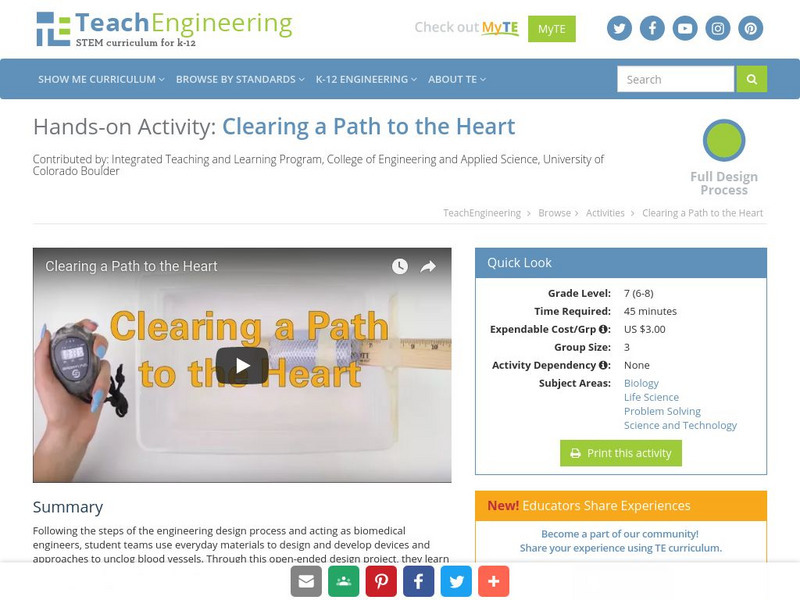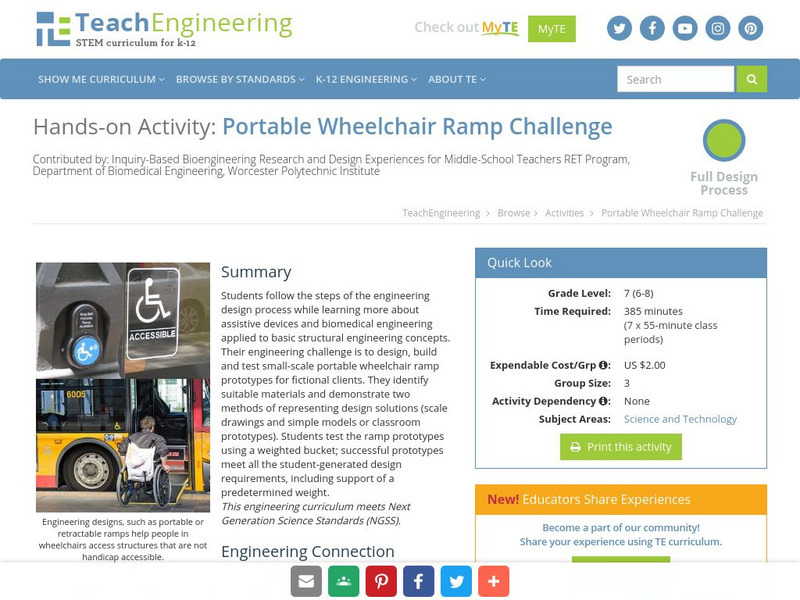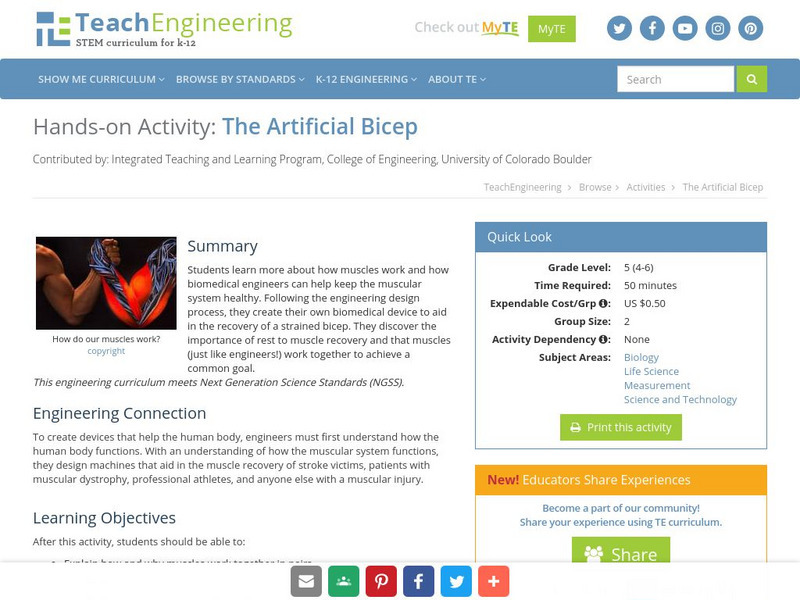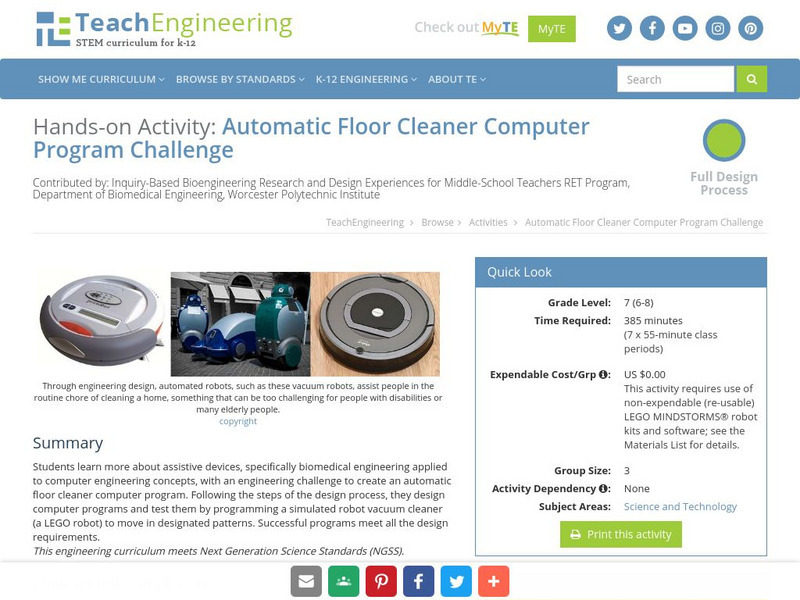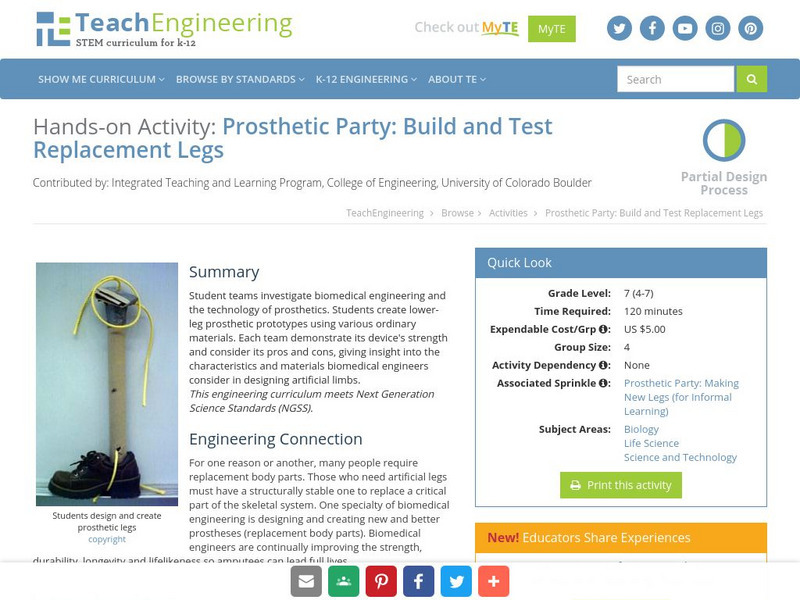Curated OER
Super Scientists Code
In this science learning exercise, students use the key code on the right to unscramble each of the scientists. They also match each of the scientists found to their correct description.
TeachEngineering
Teach Engineering: Designing Medical Devices for the Ear
Students are introduced to biomedical engineering and the engineering design process through a short lecture and an activity in which they design their own medical devices for retrieving foreign bodies from the ear canal. They learn...
TeachEngineering
Teach Engineering: Designing a Medical Device
Students learn the engineering design process by following the steps, from problem identification to designing a device and evaluating its efficacy and areas for improvement. A quick story at the beginning of the activity sets up the...
TeachEngineering
Teach Engineering: Teaching the Engineering Design Process
Students follow the steps of the engineering design process (EDP) while learning about assistive devices and biomedical engineering. They first go through a design-build-test activity to learn the steps of the cyclical engineering design...
TeachEngineering
Teach Engineering: Design a Carrying Device for People Using Crutches
Students are given a biomedical engineering challenge, which they solve while following the steps of the engineering design process. In a design lab environment, student groups design, create, and test prototype devices that help people...
TeachEngineering
Teach Engineering: Pharmaceutical Research Design Problem
Through this lesson and its associated activity, students explore the role of biomedical engineers working for pharmaceutical companies. First, students gain background knowledge about what biomedical engineers do, how to become a...
TeachEngineering
Teach Engineering: Broken Bones
The purpose of this activity is to introduce students to the concept of the engineering design process and to teach them how to apply it. In "Broken Bones," students will explore the steps of the engineering design process. They will...
TeachEngineering
Teach Engineering: The Strongest Pump of All
In this lesson plan the students will learn how the heart functions. Students will be introduced to the concept of action potential generation. The lesson plan will explain how action potential generation causes the electrical current...
TeachEngineering
Teach Engineering: If You're Not Part of the Solution!
Students continue the research begun in the associated lesson as if they were biomedical engineers working for a pharmaceutical company. Groups each perform a simple chemical reaction (to precipitate solid calcium out of solution) to...
TeachEngineering
Teach Engineering: Sticks and Stones Will Break That Bone!
Students learn about the strength of bones and methods of helping to mend fractured bones. During a class demonstration, a chicken bone is broken by applying a load until it reaches a point of failure (fracture). Then, working as...
TeachEngineering
Teach Engineering: Sounds All Around
Students follow the steps of the engineering design process to create their own ear trumpet devices (used before modern-day hearing aids), including testing them with a set of reproducible sounds. They learn to recognize different...
TeachEngineering
Teach Engineering: Blood Clots, Polymers and Strokes
Students are introduced to the circulatory system with an emphasis on the blood clotting process, including coagulation and the formation and degradation of polymers through their underlying atomic properties. They learn about the...
TeachEngineering
Teach Engineering: Engineering Bones
Middle schoolers extend their knowledge of the skeletal system to biomedical engineering design, specifically the concept of artificial limbs. Students relate the skeleton as a structural system, focusing on the leg as structural...
TeachEngineering
Teach Engineering: Watch Out for the Blind Spots
In this service-learning engineering project, students follow the steps of the engineering design process to design a hearing testing device. More specifically, they design a prototype machine that can be used to test the peripheral...
TeachEngineering
Teach Engineering: Off Road Wheelchair Challenge
Students further their understanding of the engineering design process (EDP) while being introduced to assistive technology devices and biomedical engineering. They are given a fictional client statement and are tasked to follow the...
TeachEngineering
Teach Engineering: Design a Bicycle Helmet
The goal of the activities is for students to understand the basics of engineering associated with safety products. Using a bicycle helmet helps to protect the brain and neck during a crash. In order to do this effectively, helmets must...
TeachEngineering
Teach Engineering: My Mechanical Ear Can Hear!
Students are introduced to various types of hearing impairments and the types of biomedical devices that engineers have designed to aid people with this physical disability.
TeachEngineering
Teach Engineering: Designing a Robotic Surgical Device
Student teams create laparoscopic surgical robots designed to reduce the invasiveness of diagnosing endometriosis and investigate how the disease forms and spreads. Using a synthetic abdominal cavity simulator, students test and iterate...
TeachEngineering
Teach Engineering: Clearing a Path to the Heart
Following the engineering design process and acting as biomedical engineers, student teams use everyday materials to design and develop devices and approaches to unclog blood vessels. They learn about the circulatory system, biomedical...
TeachEngineering
Teach Engineering: Portable Wheelchair Ramp Challenge
Students follow the steps of the engineering design process while learning more about assistive devices and biomedical engineering applied to basic structural engineering concepts. Their engineering challenge is to design, build and test...
TeachEngineering
Teach Engineering: The Artificial Bicep
Young scholars learn more about how muscles work and how biomedical engineers can help keep the muscular system healthy. Following the engineering design process, they create their own biomedical device to aid in the recovery of a...
TeachEngineering
Teach Engineering: Automatic Floor Cleaner Computer Program Challenge
Students learn more about assistive devices, specifically biomedical engineering applied to computer engineering concepts, with an engineering challenge to create an automatic floor cleaner computer program. Following the steps of the...
TeachEngineering
Teach Engineering: Prosthetic Party
Student teams investigate biomedical engineering and the technology of prosthetics. Students create a model prosthetic lower leg using various materials. Each team demonstrate its prosthesis' strength and consider its pros and cons,...
TeachEngineering
Teach Engineering: Artificial Heart Design Challenge
Students are presented with a hypothetical scenario in which they are biomedical engineers asked to design artificial hearts. Using the engineering design process as a guide, the challenge is established and students brainstorm to list...



